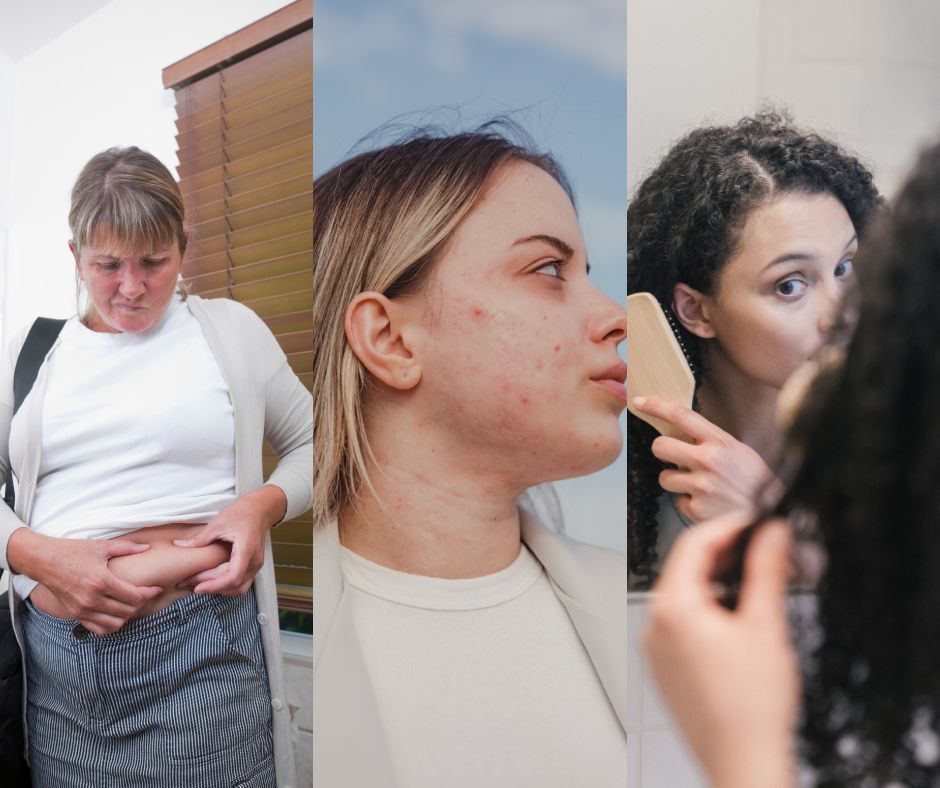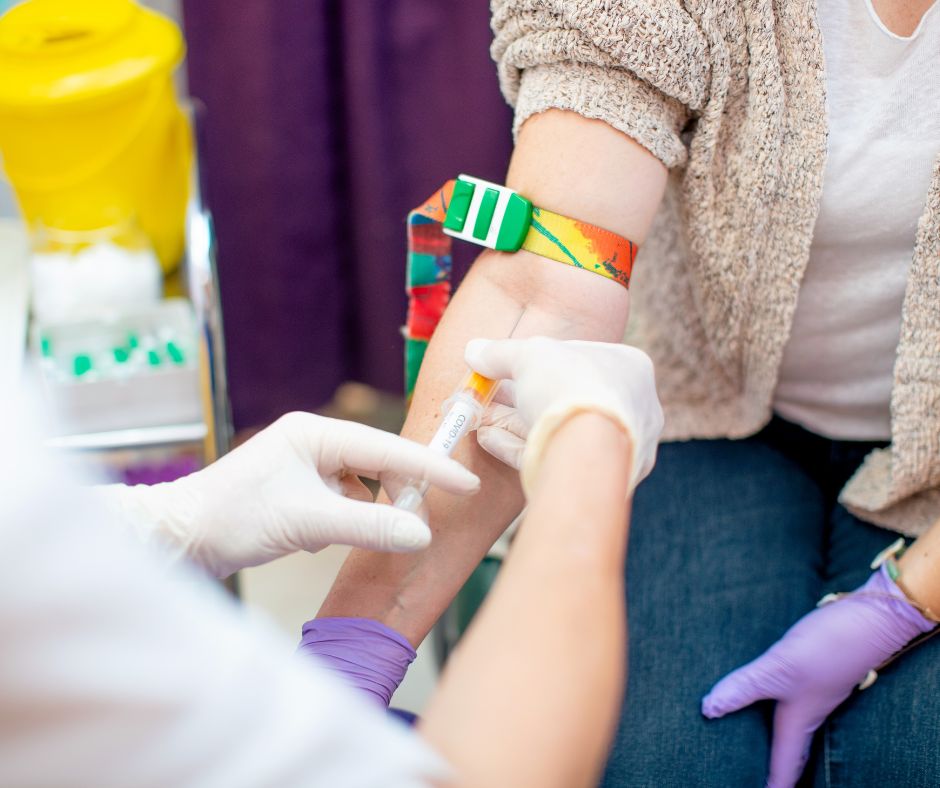Polycystic ovary syndrome (PCOS) is a common hormonal disorder that affects about 1 in 10 women* of reproductive age (NUHS 2025).
It happens when there is a hormonal imbalance that prevents the ovaries from releasing eggs regularly. This may cause irregular or missed periods, difficulty getting pregnant, acne, extra hair growth (like on the chin or chest), or weight gain.
Women with PCOS may experience:
- Difficulty getting pregnant due to infrequent and unpredictable ovulation
- Higher levels of male hormones (androgens), which can cause acne or excess hair growth
- Insulin resistance, which increases the risk of diabetes
What are some common signs and symptoms? How is it diagnosed?

Women with PCOS may experience a range of symptoms, including:
- Irregular periods – missed or absent periods
- Infertility
- Acne
- Excess body hair (hirsutism)
- Scalp hair thinning or loss
- Elevated insulin levels or type 2 diabetes
- Weight gain and obesity
- High blood pressure
- Skin tags or darkening of the skin in the nape of the neck, armpits, groin (which are signs of insulin resistance)
PCOS can be difficult to diagnose, as its symptoms may overlap with other medical conditions and normal hormonal changes particularly in teenagers or women approaching menopause.
Your doctor will usually start by asking about your periods, weight changes, and symptoms. They may recommend tests such as:
- Ultrasound of the ovaries

- Blood tests to check hormone levels

PCOS is often diagnosed based on the following criteria:
- Irregular or infrequent periods
- Raised levels of male hormones or androgens in your blood with physical signs of excess androgens, such as acne, excess hair growth, or scalp hair thinning
- Ovaries with multiple small cysts seen on ultrasound
How is PCOS treated?
Treatment depends on your age, symptoms, and whether you are trying to conceive. Your doctor may recommend a combination of the following:
Medical Treatments

- Hormone therapy or oral contraceptives to regulate periods and reduce excess male hormones.
- Insulin-sensitising medications like metformin to improve hormone balance and reduce insulin resistance.
- Referral to the gynaecologist for fertility treatment if pregnancy is desired
Lifestyle Measures

- Maintain a healthy weight through diet and regular exercise.
- Follow a balanced diet: focus on high-fibre foods, whole grains and limit refined sugars and processed foods.
Long-term Management of Insulin Resistance
If you’ve missed a couple of periods and noticed more breakouts than usual, it’s easy to blame stress or poor sleep. But these could be signs of PCOS, a condition that may require medical attention and treatment.
With proper medical care and lifestyle changes, PCOS can be effectively managed. Consulting an endocrinologist can help you get a personalised treatment plan that works for you.
